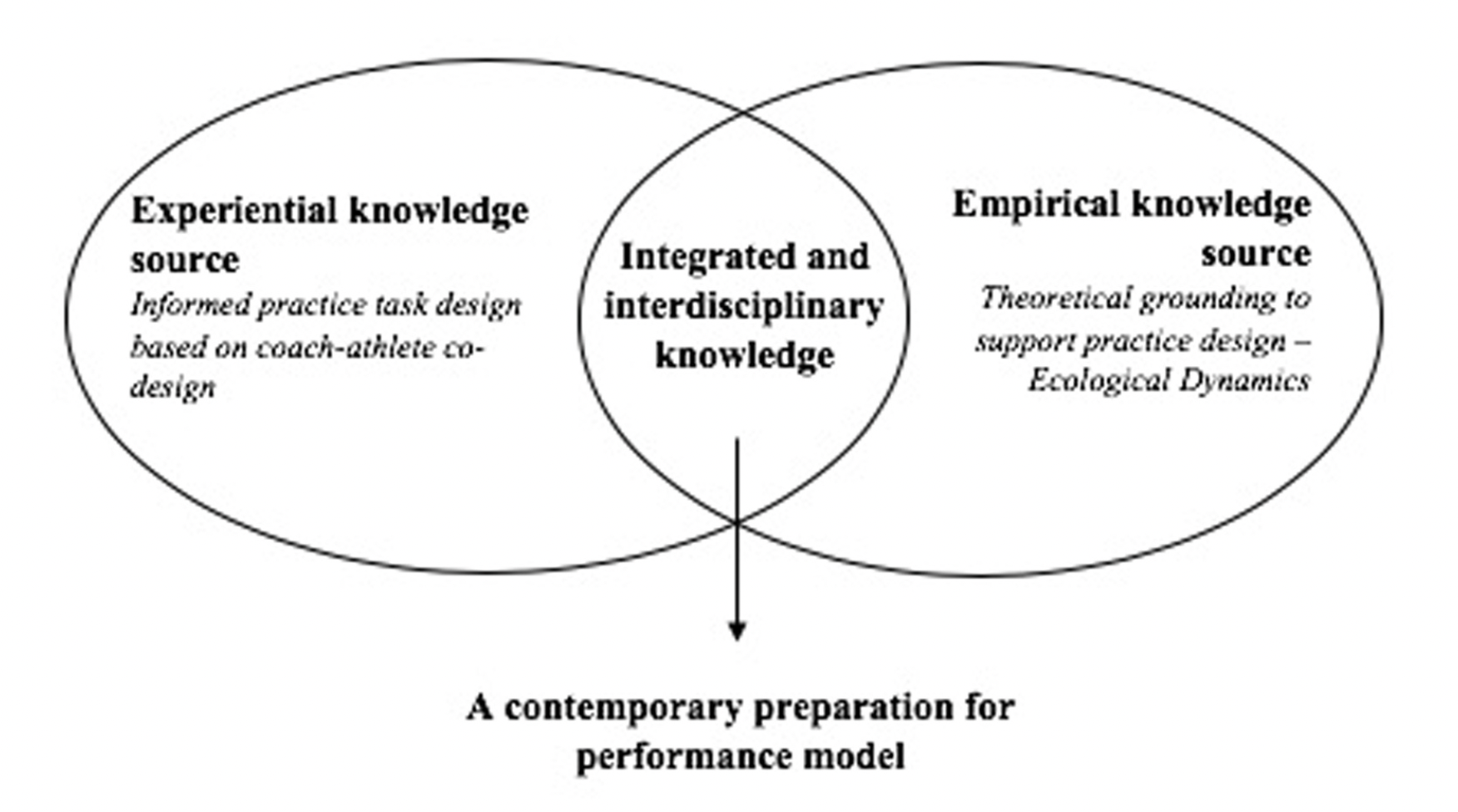Representative co-design:
Utilizing a source of experiential knowledge for athlete development and performance preparation
Carl T. Woods, Martyn Rothwell, James Rudd, Sam Robertson, Keith Davids
The concept of representative co-design offers a transformative approach to athlete development, emphasizing the integration of experiential knowledge from athletes or “performers” into the design of their practice activities. This change positions athletes not just as recipients of training but as active participants in shaping their learning environments. C.T. Woods et al., (2021) state that, “Practitioner-performer interactions could enrich the design of learning environments by promoting the utilization of soliciting affordances and encouraging the psychological engagement of performers.” This insight underlines the potential for co-design to foster a deeper connection between athletes and their training processes.
Key Points:
Experiential Knowledge (Learning from Athletes): The paper highlights that traditional performance preparation models (training plans) often overlook the insights of athletes. The authors propose that by including athletes in the planning process, coaches can make training more effective.
Ecological Dynamics Framework (Understanding the Environment): The authors argue that a focus on how athletes interact with their surroundings can lead to better training. “Contemporary models would be enhanced by a performer being actively engaged with the learning process” (C.T. Woods et al., p.1), advocating for a more participatory approach to training.
Development of Intelligent Performers (Developing Smart Athletes): The authors emphasize the need to create “intelligent performers” who can make informed decisions during competition. This intelligence stems from a deep understanding of their environments, shaped through representative co-design.
Fig. 2. Contemporary athlete development and preparation for performance models in sport informed by the integration of experiential and empirical knowledge.
Implications for Sprinters
For sprinters, the application of representative co-design can lead to significant advancements in training methodologies. By involving athletes in the design of their practice and training tasks, coaches can create more relevant and engaging training experiences. This approach allows sprinters to refine their skills in environments that closely simulate competitive conditions, enhancing their adaptability and decision-making capabilities. As the authors note, “By empowering performers to take greater ownership of their learning activity,” sprinters are likely to develop a more profound understanding of their performance environment, leading to improved outcomes in both training and competition.
C.T. Woods, Martyn Rothwell, James Rudd, Sam Robertson, Keith Davids, Representative co-design: Utilising a source of experiential knowledge for athlete development and performance preparation, Psychology of Sport and Exercise, Volume 52, 2021, 101804, ISSN 1469-0292, https://doi.org/10.1016/j.psychsport.2020.101804.


